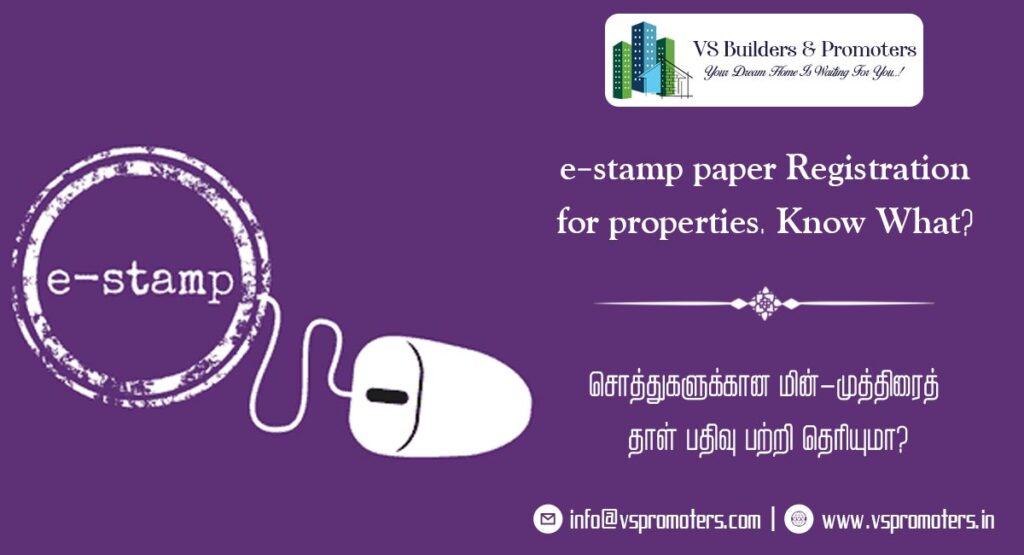
E-stamp paper registration for properties refers to the process of using electronic stamp papers for the registration of property transactions. Also, E-stamp papers are virtual or digital stamp papers that are purchased online from government-approved platforms or authorized banks.
Therefore, the traditional method of using physical stamp papers involved purchasing them from government offices or licensed vendors. However, many countries and regions have now adopted electronic stamping to streamline the process and reduce fraudulent activities related to stamp papers.
E-stamped paper registration for properties:
Here’s what you need to know about e-stamp paper registration for properties:
Online Purchase: E-stamp papers can be purchased online through government-approved websites or authorized banks. Also, the user needs to provide the required details and make the payment electronically.
Non-Judicial Stamp Duty: Stamp duty is a tax levied on property transactions by the government. Likewise, E-stamp papers are used for paying non-judicial stamp duty, which is a prerequisite for registering property documents.
Authentication and Validity: E-stamp papers have a unique identification number and are digitally signed by the issuing authority. So, e-stamp paper registration for properties ensures their authenticity and validity.
Secure and Tamper-Proof: E-stamp papers are designed to be tamper-proof, which reduces the risk of fraudulent practices associated with physical stamp papers.
E-Stamping Authorities: Each region or country may have its own designated authorities responsible for issuing e-stamp papers and managing the e-stamping process.
Usage in Property Registration: E-stamp papers are used during property registration to pay the appropriate stamp duty as required by the government. The exact process may vary depending on jurisdiction and local regulations.
Stamp Duty Calculations: The stamp duty amount is typically based on the property’s transaction value or market value, whichever is higher. Various factors, such as the property type, location, and ownership type, can also influence the stamp duty calculation.
For More Details:
Contact: +91 7094434780
Mail: info@vspromoters.com
Visit: www.vspromoters.in

